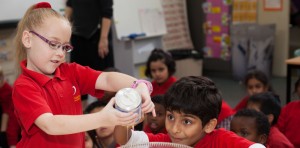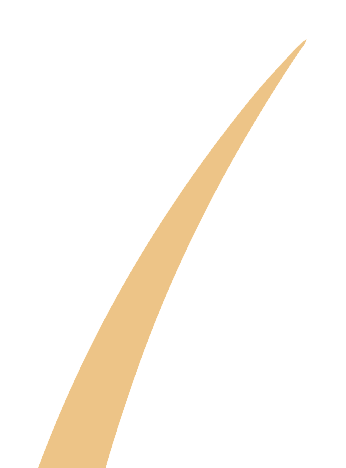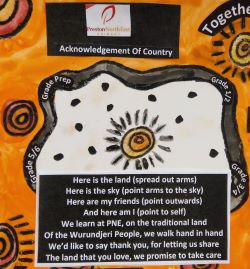A Positive Start to School at Preston North East.
Starting school marks an important milestone in the lives of young children. Children’s adjustment to their first year at school is strongly influenced by their familiarity with the school setting. At Preston North East Primary school, we believe it is of vital importance to make the transition from home or a preschool setting to the school situation as smooth as possible.
Our Foundation Transition program will :
- Assist pre-schoolers in making a successful transition to the school environment.
- Provide opportunities for the children to participate in classroom activities
- Provide opportunities for children to practise skills necessary for school.
- Encourage new friendships
- Provide information and support for parents.
At Preston North East we value creating a positive start to school for all of our students and their families. In order to build the relationships that are crucial to a successful start to school we organize the following events to occur throughout Semester Two.
- Visits by children between early childhood settings and schools,
- Parent information sessions at our school
- Visits by educators between early childhood settings and schools.
Our Transition program commences in Term 3 with our Foundation Transition Coordinator and a Foundation Teacher visiting our local kindergartens and early learning centers to observe and participate in the 4 Year old session groups. This a great opportunity to meet the students and parents and answer any queries they may have regarding starting school in the following year.
In Term 4, our Foundation Transition Coordinator along with members of the Foundation team run a 7 week Transition program on Tuesday afternoons from 1:45 – 3:10pm. These sessions are held within the Foundation classrooms and students are invited to participate in a variety of activities designed to help them feel comfortable in a classroom situation. We arrange for Big Buddies (Year 5/6) students to support the students through the Transition program.
A variety of oral language, literacy and numeracy activities along with fine and gross motor activities are implemented throughout these sessions. Students are also given the opportunity to participate in our Specialist program activities – Art, PE and Music.
Is my child ready for school?
There are many things to consider when deciding if your child is ready to start school. Please ask your child’s kindergarten teacher for advice. If your child’s kindergarten teacher recommends a second year of kindergarten please take this into serious consideration. An extra year will give your child time to develop the skills they need to succeed at school.
Here are some questions to consider:
- Are my child’s self-care skills developed?
- Are my child’s social skills with peers established?
- Does my child appear to be emotionally mature?
- Does my child demonstrate self-control?
- Can my child tolerate frustration?
- Can my child cope with things that are worrying?
- Is my child able to communicate their needs and express their feelings?
- Can my child understand and follow directions?
- Is my child flexible and able to adapt to changes of routine?
- Does my child persist when faced with a difficult task?
- Can my child concentrate and pay attention?
- Can my child hold a pencil confidently, use scissors and recognise their name?
- Does my child show physical confidence?
- Does my child’s kindergarten teacher feel that he/she is ready for school?
Starting School – Literacy at School
When children are about to begin school, it gives them a good start if they are able to:
- Recognise and write some letters of their own name.
- Notice signs, symbols, letters and words that they see in the environment.
- Pay attention to repeated sounds in rhyme, jingles, ads and stories.
- Tell stories about events in their lives in sequence.
- Listen with interest and courtesy when other people speak.
- Talk about favourite stories and describe some of the characters or things that happen.
- Hold a book the right way up and trace their finger from top left to bottom right as they pretend to read.
- Have experience with drawing, scribbling and making marks on paper.
Starting School – Numeracy at School
When children are about to begin school,
it gives them a good start if they are able to:
- Talk about their age and recognise some numbers.
- Count a group of objects up to 10.
- Recognise dots on a dice.
- Sort things that are ‘similar’ and ‘different’ and talk about why.
- Name common shapes and colours.
- Use words to compare items e.g. ‘This is the biggest’ and ‘This one is short’.
- Use words to describe the position of objects e.g. ‘It’s under the chair, beside the doll, next to the table …’
- Help adults with everyday maths experiences such as cooking and shopping.
- Describe the weather.
Helping children get ‘ready for school’ at home or kindergarten:
- Support them to develop self-help and self-care skills (independent toileting, dressing, eating, cleaning up after themselves).
- Follow a routine together (eating and opening wrappers for lunch at a set time, read a story before playing etc).
- Help children learn to recognise and write their name.
- Provide many opportunities for them to develop their fine motor skills (such as play dough, Lego, threading beads, cutting paper, undoing buttons and zips, drawing with different tools and finger plays and rhymes).
- Slowly introduce them to more structured activities.
- Practise sitting and focusing on small and whole class group activities for extended period of time.
- Learn to wait their turn to speak by saying ‘excuse me’ or putting up their hand.
- Support them to handle their emotions by reminding them to ‘use their words’ to resolve conflicts.
- Practise taking turns and asking to join in game.
- Visit local schools to become comfortable in the environment.
- Practise playing ‘school’ and dress up in a school uniform.
- Read picture books about starting school and talk about how the characters feel.




